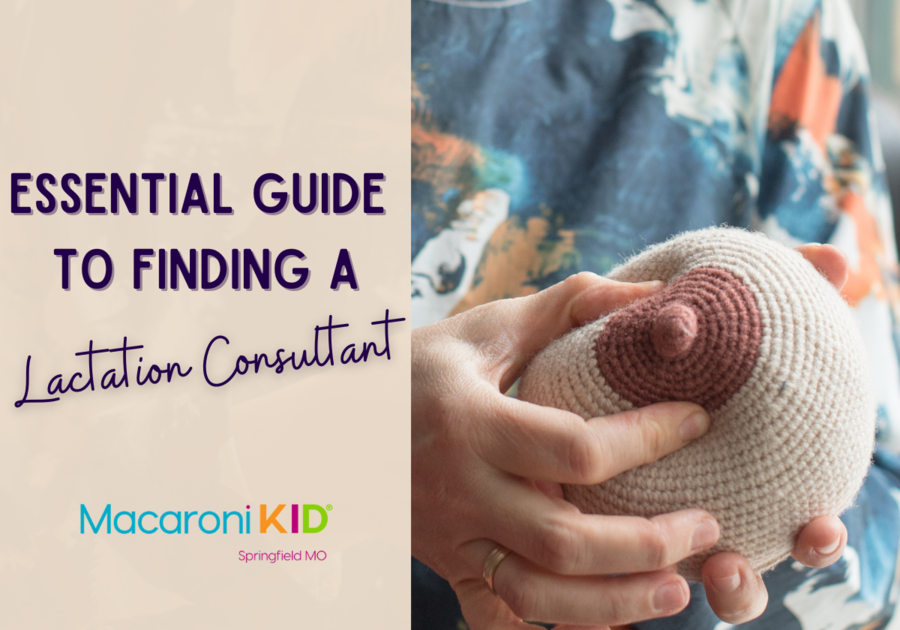Breastfeeding is a remarkable experience that offers numerous benefits to both infants and parents. However, it can also pose challenges and complexities that may require additional support. This is where a lactation consultant plays a vital role. In this guide, we will explore the importance of finding a lactation consultant for all caregivers, including exclusively pumping parents, non-birthing parents, and those who utilize combination feeding. We will highlight the benefits of working with a lactation consultant and provide guidance on finding the right professional to meet your individual needs.
Disclaimer: This article is for informational purposes only and is not a substitute for professional medical advice.
Please consult your healthcare provider or lactation consultant for personalized guidance tailored to your specific situation.
 |
Why You Need a Lactation Consultant on Your Prenatal and Postpartum Team:
Welcoming a new life into the world is an incredible journey, filled with joy, anticipation, and sometimes a few challenges along the way. As expectant parents embark on this wonderful adventure, one professional who can make a world of difference is a lactation consultant. Their expertise in breastfeeding and lactation can be an invaluable asset, ensuring a smooth and fulfilling experience for both mother and baby. Let's explore the reasons why having a lactation consultant on your prenatal and postpartum team is essential.
Knowledge and Support:
Breastfeeding is a natural process, but it doesn't always come easily to every mother and baby. A lactation consultant is a trained professional who possesses a deep understanding of breastfeeding techniques, positioning, and potential challenges. Their knowledge helps demystify the process, providing guidance to mothers on initiating and maintaining successful breastfeeding.
Personalized Care:
Each mother-baby dyad is unique, and what works for one may not work for another. A lactation consultant recognizes this individuality and tailors their approach accordingly. They assess both the mother and baby's needs, taking into account factors such as latch, milk supply, positioning, and any underlying conditions. By providing personalized care, lactation consultants empower families to overcome difficulties and establish a strong breastfeeding relationship.
Early Intervention:
Timely support is crucial during the prenatal and postpartum period. A lactation consultant can identify and address potential breastfeeding challenges early on, minimizing the risk of complications and promoting a positive breastfeeding experience. From addressing latch issues to managing engorgement or sore nipples, their expertise can prevent problems from escalating and ensure a smoother transition for both mother and baby.
Confidence Boost:
Breastfeeding can be an emotionally charged experience, and many new mothers face doubts and anxieties along the way. Having a lactation consultant as part of your support team can provide a much-needed confidence boost. They offer reassurance, practical advice, and encouragement, helping mothers navigate through the ups and downs of breastfeeding with increased self-assurance.
Partner Involvement:
Breastfeeding is a shared journey, and involving partners in the process can be immensely beneficial. Lactation consultants recognize the importance of partner support and involve them in the breastfeeding education process. By providing partners with knowledge and techniques to support breastfeeding, lactation consultants strengthen the bond between parents, enhancing the overall experience for the entire family.
Postpartum Assistance:
Breastfeeding challenges don't always end when the baby is born. Mothers may encounter issues such as engorgement, blocked milk ducts, or concerns about milk supply in the postpartum period. A lactation consultant's presence ensures ongoing support, helping mothers navigate these obstacles and maintain a healthy breastfeeding relationship. Their expertise and guidance can provide peace of mind during this crucial phase of the mother-baby bonding process. Lactation Consultants can also help with plans for returning to work or school, milk donation, weaning, and safely suppressing milk production.
Lactation Consultants can support and offer guidance to all families and infant feeding scenarios.
Exclusively Pumping Parents
Pumping breast milk allows parents to provide their infants with the benefits of breastfeeding while maintaining flexibility. However, pumping can present challenges such as low milk supply, difficulty with latching, or issues related to milk expression and storage. A lactation consultant can provide personalized guidance, helping pumping parents optimize milk production, troubleshoot pump-related concerns, and ensure that their infants are receiving adequate nutrition. They can also offer emotional support and valuable advice on integrating pumping into daily routines.
Non-Birthing Parents
Non-birthing parents, such as adoptive parents and LGBTQ+ parents, often have unique breastfeeding challenges due to the absence of physiological changes associated with pregnancy and childbirth. Lactation consultants can help non-birthing parents navigate induced lactation, breastfeeding techniques, and the use of supplementary feeding systems. They can offer support and education to enhance the parent-infant bond, promote lactation induction, and ensure optimal breastfeeding experiences for non-birthing parents.
Finding the Right Lactation Consultant
IBCLCs provide invaluable support, guidance, and evidence-based information to address breastfeeding challenges and help parents achieve their feeding goals. By seeking a lactation consultant who understands your unique circumstances, you can maximize your breastfeeding experience, promote infant health, and nurture the parent-infant bond. Remember, you don't have to navigate breastfeeding alone—reach out to a lactation consultant and embark on a rewarding breastfeeding journey with confidence.
1. Seek Recommendations:
Start by asking your healthcare provider, pediatrician, or local breastfeeding support groups for recommendations.
They can provide you with trusted resources and professionals in your area.
2. Certification and Experience:
Look for a lactation consultant who is certified by an internationally recognized organization, such as the International Board of Lactation Consultant Examiners (IBLCE).
Verify their credentials, experience, and specialization in supporting pumping, non-birthing, and combination feeding parents.
3. Accessibility and Availability:
Consider the accessibility and availability of the lactation consultant.
Opt for someone who offers in-person consultations, virtual support, or both, ensuring that they can accommodate your schedule and needs.
4. Compatibility and Support:
During the initial consultation, assess the compatibility between you and the lactation consultant.
Seek someone who provides empathetic and non-judgmental support, tailored to your specific situation, fostering a comfortable and trusting relationship.
5. Ongoing Support:
Ensure that the lactation consultant offers ongoing support beyond the initial consultation.
Breastfeeding can be a journey with evolving challenges, and having a consultant available for follow-up questions or concerns can significantly enhance your breastfeeding experience.
A lactation consultant brings a wealth of knowledge, support, and encouragement to the prenatal and postpartum journey. Their presence on your team can make a remarkable difference, ensuring that breastfeeding becomes a positive and rewarding experience for parents and baby. From personalized care and early intervention, to confidence-building and postpartum assistance, their expertise is invaluable. By including a lactation consultant on your prenatal and postpartum team, you can empower yourself with the knowledge and support necessary for a successful breastfeeding journey.
Want more information to find a Lactation Consultant in Springfield, Missouri?
CLICK HERE for our Breastfeeding Support and Resource Guide
Disclosure: As an International Board Certified Lactation Consultant (IBCLC), I fully support the World Health Organization (WHO) International Code of Marketing of Breast-milk Substitutes (1981) and subsequent World Health Assembly (WHA) resolutions. This commitment involves promoting breastfeeding and adhering to ethical guidelines regarding the marketing of infant formula, bottles, and teats. As an independent licensee of Macaroni KID National, I have no role in the selection of national advertisements that appear alongside this article, some of which may potentially violate the WHO Code.



